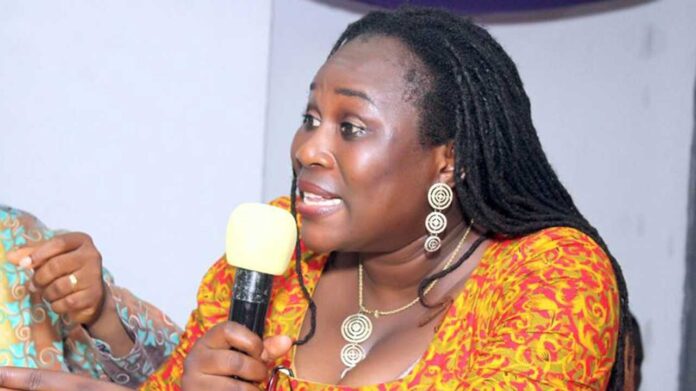By Waliat Musa,
As the Zero Discrimination Day holds today, the Joint United Nations Programme on HIV/AIDS (UNAIDS), Nigeria Association of Women Journalists (NAWOJ), Lagos State chapter and Centre for Citizens with Disabilities (CCD) have called for an end to discrimination against women, Persons with Disabilities (PWDs) and People living with HIV/AIDS (PLWHA).
UNAIDS noted that criminal laws targeting key populations and PLWHA violate human rights, worsen stigmatisation and constitute barriers to support and health services.
It said: “In 2021, the world set ambitious law reform targets to remove criminal laws that are undermining HIV response and leaving key populations behind, recognising decriminalisation as a critical element in the response. Countries made a commitment that by 2025, less than 10 per cent of nations would have punitive legal and policy environments that affect HIV response.”
According to the global agency, the world is far from achieving the target, as 134 countries still explicitly criminalise or prosecute HIV exposure, participate in non-disclosure or transmission; 20 nations criminalise and/or prosecute transgender persons; 153 criminalise at least one aspect of sex work and 67 others criminalise consensual same-sex sexual activity.
“In addition, 48 countries still place restrictions on entry into their territories for people living with HIV, while 53 others report that they require mandatory HIV testing for marriage certificates or certain professions. One hundred and six countries report requiring parental consent for adolescents to access HIV testing,” it stated.
In her remarks, Chairperson of Lagos NAWOJ, Adeola Ekine, observed that women are mostly victims of gender discrimination, sexual abuse and harassment, education and child marriage
She added that the theme for this year’s event, ‘Save lives: Decriminalise’, draws attention to the worsening inequality and injustice that currently exist around the world, hence urgent action to end discrimination in income, gender, age, health, profession, impairment, sexual preference, substance use, gender identification, racial group, class, ethnic background and religion.
“Women are in most cases not given the opportunity to exercise their rights due to lack of recognition of pre-existing gender-based disadvantage and inequality that women face.
The major contributor is the failure to take necessary legislative measures to ensure full realisation of women’s rights, failure to adopt and implement national policies aimed at achieving gender equality, as well as failure to enforce relevant laws,” she submitted.
To reverse the trend, Ekine advised that women should be involved in governance, economic empowerment and other meaningful engagements.
Also speaking, CDD’s Executive Director, David Anyaele, while pointing out that the yearly programme provides a veritable opportunity to reflect on the extent of marginalised populations, especially people with disabilities, confirmed that discrimination against PWDs is real in Nigeria to the degree that families struggle to overcome societal stigma and isolation, propelled by traditional and religious norms and beliefs that suggest them as unwanted members of the society.
His words: “This is reinforced by state governments that conduct their affairs at the exclusion of PWDs and their organisations, thereby widening exclusion and isolation of PWDs, even as families battle to protect their own.
“A study conducted by the CDD in 2022 shows that PWDs are worried about discrimination in the area of employment opportunities, education, healthcare services and political participation, as they are treated with disdain whenever they appear before institutions offering these services.”
He recalled that in 2019, the Federal Government passed the Discrimination against Persons with Disabilities (Prohibition) Act, 2018 that provides that no one shall be discriminated against on the grounds of disabilities in line with the United Nations Convention on the Rights of Persons with Disabilities (UNCRPD), which Nigeria is a signatory.
At the sub-national level, Anyaele added that many states have passed different versions of the law to protect their own citizens with disabilities – the major challenge being implementation – as the study showed poor execution.


